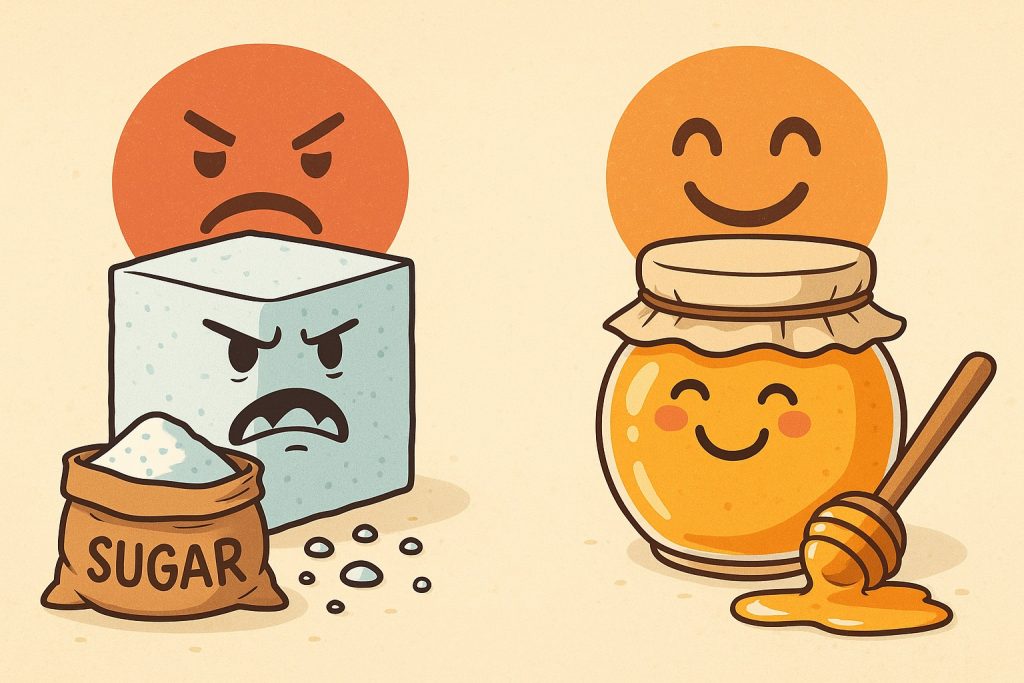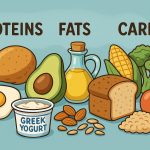Refined sugar* is one of the most widely consumed substances in the modern diet — and one of the most harmful. While it provides energy, it lacks any nutritional value and contributes to a growing list of health problems. If you care about your long-term health, the message from research is clear: pure refined sugar should be minimized or avoided altogether.
The Hidden Dangers of Refined Sugar
Multiple scientific studies have linked high sugar intake to:
- Obesity
- Type 2 diabetes
- Fatty liver disease
- Tooth decay
- Chronic inflammation
- Increased risk of heart disease and cognitive decline
A 2014 study published in JAMA Internal Medicine showed that people who got 25% or more of their daily calories from added sugar had a twofold higher risk of dying from heart disease compared to those who kept it under 10%.
Additionally, sugar causes blood sugar spikes followed by crashes, promotes overeating, and can lead to addictive eating behavior. It crowds out healthier food choices and harms your metabolism over time.
Why Honey in Moderation Is a Better Choice
Unlike refined sugar, honey* is a natural sweetener rich in antioxidants, enzymes, and trace nutrients. While it’s still a sugar, studies have shown that raw honey, especially from monofloral sources, can offer meaningful benefits when used responsibly.
Scientific findings:
- A 2022 Nutrition Reviews meta-analysis found that moderate honey consumption (less than 25 grams/day) may improve cholesterol levels and reduce fasting blood sugar.
- Honey supports gut health by acting as a mild prebiotic, encouraging the growth of beneficial bacteria.
- It contains polyphenols, which reduce oxidative stress and may protect against inflammation.
However, more is not better — overuse of honey eliminates its potential benefits. Always choose raw or minimally processed honey, and use no more than 1–2 teaspoons per day.
Final Verdict
Refined sugar is best avoided. Its long-term effects on health are overwhelmingly negative, and it offers no essential nutrients.
Honey, in small amounts, can be a better alternative — not because it’s harmless, but because it contains compounds that may support health when used sparingly.
If you crave sweetness, let honey replace sugar occasionally, not constantly. And remember: reducing overall sweetness in your diet is the healthiest step of all.
Glossary
- Sugar* — a simple carbohydrate used for sweetness, often added to processed foods.
- Honey* — a natural sweetener produced by bees, containing antioxidants and beneficial enzymes.
- Prebiotic* — a compound that feeds healthy gut bacteria.


